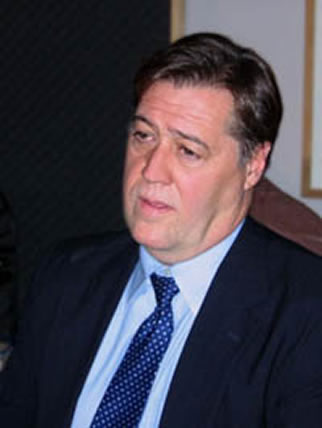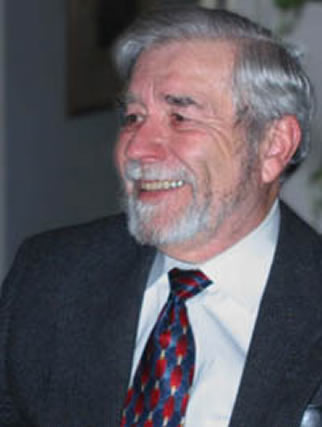Without justice, the solid authority which Jason Berry and Gerald Renner believe is essential in every institution and society crumbles. In Vows of Silence: The Abuse of Power in the Papacy of John Paul II, they report on effects of secrecy which have denied justice and rocked the Church to its very foundations. Renner and Berry seek a renaissance of Catholicism in their challenge to rigid and secretive hierarchical realities in their Church.
When the truth about widespread child sexual abuses was blocked, these two veteran investigative reporters (and practicing Catholics) traced the lines of the authority imposing silence. Their search led them to the Vatican. According all due respect to Pope John Paul II, Mr. Berry and Mr. Renner say that in spite of being a champion of human rights, John Paul has a blindspot in his world view. Celibacy is all to him, they say, his prism for seeing the world, a romantic ideal of chivalry and sacrifice.
The result? They believe the Pope is unable to look at the sexual behavior patterns within clerical life that have devastated the Church. They think this blind spot echoes the hubris of kings in Shakespearean tragedy. And since the Papal State is one of the world’s last functional absolute monarchies, the comparison goes beyond the literary.
Secrecy is an essential part of this story, they report. In the Vatican, when a bishop becomes a Cardinal, he takes a “Pontifical Vow” -- a vow to the sovereign pontiff of the Church in which the Cardinal pledges not to allow scandalous information to become public. Citing historical predicates, Berry and Renner say the intention of this vow is to make sure that the Church is protected from attacks based on scandal.
When democratic forces -- the media and the law -- have broken through the silence in countries with a common law tradition (the United States, Ireland, Australia, and the United Kingdom,) painful headlines about sexual abuse tell the story. Italy’s legal system is different, hence fewer revelations and, say Berry and Renner, when the Vatican does not see an issue in the Italian media, it looks to the United States and other countries with an air of detachment.
In the Second Vatican Council, Pope John XXIII called for “Aggiornamento” -- lifting the windows to let in the modern world and the winds of change. Those who lost power then, Renner and Berry say, have regained it and are hostile to the Vatican Two definition of the Church: the people of God with responsibility shared by all.
The great bright spot Berry and Renner find in the sex-abuse scandals are the numbers of Catholic reform groups growing up, survivors’ networks and others who want a role in the decision-making of the Catholic Church. This frightens Bishops and threatens the Vatican. Mr. Renner’s and Mr. Berry’s hope is for a Pope, like John XXIII, who insists on honesty and truth from all members of an ecclesiastical power structure community. With that Pope, Mr. Berry and Mr. Renner believe, a revitalized Church will inspire the world.
[This Program was recorded March 18, 2004, in Atlanta, Georgia, US.]

Conversation 1
Jason Berry and Gerald Renner tell Paula Gordon and Bill Russell how being practicing Roman Catholics affects their work as investigative reporters writing about problems inside the Catholic Church.
 6:18 6:18 |
Conversation 2
Mr. Berry compares democratic systems to how the Vatican, a monarchy, functions. He describes a Cardinal’s “Pontifical Vow” not to allow scandalous information to become public and the effects of the logic of secrecy. Mr. Renner notes his personal experience as a spokesperson for the U.S. Catholic Bishops. He says the 2002 Boston “Globe” exposé showed how secrecy allowed cavalier treatment of victims and solicitous attitudes toward abusers. Mr. Berry compares the prosecution of pedophiles under different legal systems, certain that pedophilia is a universal problem. Mr. Renner and Mr. Berry both call for honesty.
 11:15 11:15 |
Conversation 3
A bishop’s only constituent is the Pope, Mr. Renner says, and calls for a separation of powers within the Church. Mr. Berry expands, using the case of Father Maciel, the head of the Legion of Christ, as a prime example of how secrecy breeds abuse. The Boston “Globe” exposé allowed rank and file church members to demand the truth as well as changes, Mr. Berry remembers. Vatican spokespeople are reported saying that it’s better for individual wrongs to go unchecked than to risk people losing their faith. The psychodynamics of secrecy in all institutions are explored.
 9:42 9:42 |
Conversation 4
Mr. Renner describes the reforms of the Second Vatican Council and unresolved conflicts over where decisions should be made. Asserting their respect for John Paul II, Mr. Berry and Mr. Renner explain why they believe the Pope has been reactionary in allowing freedom of conscience to become a baseline in the way the Church functions. They expand with examples. Sexual segregation is the root of the problem, Mr. Renner and Mr. Berry believe, and explain why. Father Tom Doyle’s saga is told. The losers of Vatican II have regained power say Mr. Berry and Mr. Renner, who call for justice as well as authority. Celibacy is a blind spot in Pope John Paul II’s world view, they say.
 9:50 9:50 |
Conversation 5
Mr. Berry gives a broad sense of the state of the Roman Catholic church in the world. The possibility of a rejuvenated Church under a visionary Pope is proposed. Celibacy is a law, not a dogma, Mr. Berry points out in discussing celibacy requirements and options. A renaissance of Catholicism is envisioned, founded on conversations about a whole range of issues about which the Pope now forbids discussion. Pope John Paul is considered in the light of history. Lay people, not the next Pope, are the key to the future, Mr. Berry proposes.
 12:02 12:02 |
Conversation 6
The high attrition rate of heterosexual men leaving the priesthood to marry corresponds to an escalation in priests who are homosexual, Mr. Berry says, pointing to the difficulty the Church has attracting stable, heterosexual men in the West. The other untold story in the Church is priests attracted to women, Mr. Renner concludes, calling for further studies.
 4:31 4:31 |
Acknowledgements
Standing up to injustice is always laudable. We thank Jason Berry and Gerald Renner for breaking the silence on behalf of those who have had no voice, for being courageous where others have faltered and for being willing to speak lovingly from within a tradition they are eager to cleanse.
|
|
|

Jason Berry
... reporter and author. Vows of Silence: The Abuse of Power in the Papacy of John Paul II is the result of long years research by Mr. Berry and Gerald Renner. Mr. Berry is also author of Lead Us Not Into Temptation and is widely published. He is a practicing Roman Catholic.

Gerald Renner
... reporter. Mr. Renner is recently retired from “The Hartford Courant,” where he was a staff writer specializing in religious news, issues and trends. Co-author of Vows of Silence, Mr. Renner was a lay spokesman for the U.S. Catholic Bishops from 1965-67 and is a practicing Roman Catholic. Mr. Renner died in 2007 at the age of 75.
|
 |
|


